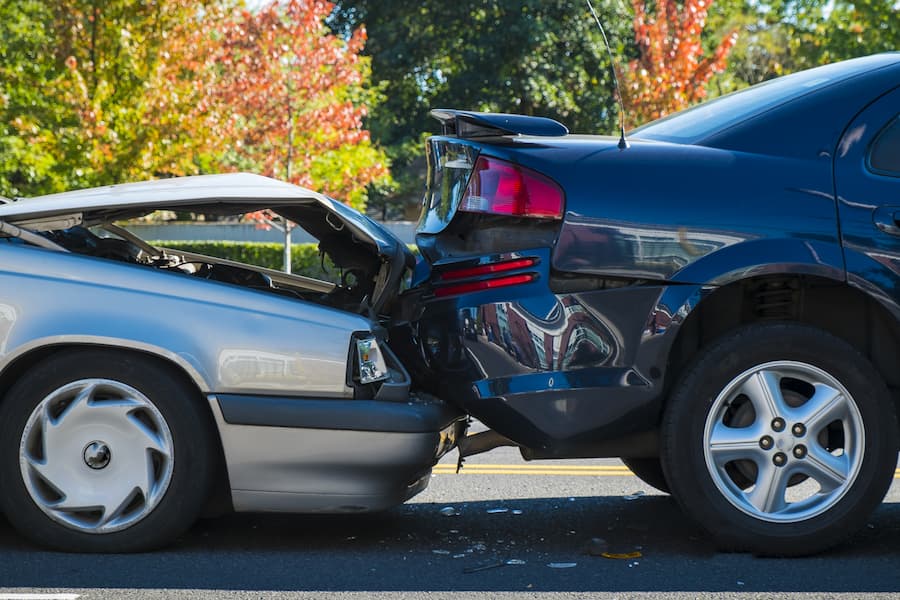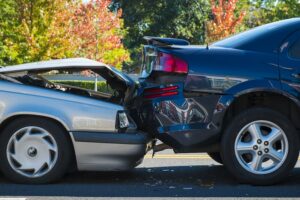Can I Sue After a Car Accident?

If you suffered injuries in a car accident someone else caused, you are likely considering your options for obtaining compensation. Your injuries have resulted in considerable medical bills and other out-of-pocket costs, and you had to take time off work to recover. You worry about how you will make ends meet.
Since insurance covers most car accident injury claims, you will first seek compensation through the insurance company. However, you may have to take your case to court and sue for the compensation you need.
Various factors will determine whether you take your case to trial, so you need a lawyer who will know if you can sue after a car accident, and that lawyer will need to know the deadlines to file your case.
For a comprehensive review of your case and specific advice regarding your options, consult an experienced car accident attorney in Indianapolis.
Reasons You May Need to Sue After a Car Accident
 The reasons why you may need to sue after a car accident can vary depending on the circumstances of the accident and the applicable laws in your state. Some common reasons why you may need to file a lawsuit include:
The reasons why you may need to sue after a car accident can vary depending on the circumstances of the accident and the applicable laws in your state. Some common reasons why you may need to file a lawsuit include:
Severe Injuries or Long-Term Disabilities
If you suffered severe injuries or long-term disabilities in the accident, you may need to sue to seek compensation for medical expenses, rehabilitation costs, ongoing care, lost income, and diminished earning capacity.
The insurer may refute your claim that you suffered a serious injury. That’s why you need an attorney to protect your rights and fight for your entitlements.
Inadequate Insurance Coverage
If the at-fault party’s insurance coverage limits won’t cover your damages, you may need to file a lawsuit to pursue additional compensation. This can occur with an uninsured or underinsured driver, or an insurance company that refuses to provide a fair settlement.
Disputed Liability
If a dispute arises over fault for the accident and your attorney and the insurance companies cannot resolve the matter, you may need to sue to establish liability. This can involve presenting evidence, such as witness testimonies, accident reconstruction reports, and expert opinions, to prove that the other party caused the accident.
Indiana follows a modified comparative fault model that may affect how much (if any) compensation you can receive if the court finds you partially or mostly at fault for causing the accident and your injuries. Speak with a car accident attorney immediately to determine whether you bear any responsibility for the crash and let your lawyer advocate for you if the insurer tries to blame you for your injuries.
Bad Faith Insurance Practices
If your insurance company acts in bad faith by unreasonably denying your claim, delaying the claims process without justification, or offering an unfairly low settlement, you may need to sue to hold them accountable and recover the compensation you deserve.
Can I Sue the At-Fault Driver Directly?
In addition to suing the insurance company, you may file a lawsuit against the at-fault driver in certain situations.
Most of the time, these scenarios involve the at-fault driver conducting criminal offenses that caused the crash and your injuries, such as:
- Drunk driving
- Distracted driving
- Ignoring or violating traffic laws
- Fleeing the scene of the accident
If the at-fault party’s conduct was particularly egregious or involved intentional wrongdoing, you may seek punitive damages. The court only awards these damages at its own discretion. They punish the responsible party and deter similar behavior. There is no guarantee you will receive any exemplary damages, and you should discuss the matter with your attorney and follow their recommendations on whether you can pursue this compensation.
Even though you want to hold the at-fault driver accountable and get the maximum compensation you deserve, an individual defendant may lack the means to pay any damages the court awards you. Your attorney can evaluate your case and advise you of your best options.
What Is the Trial Process for a Car Accident Injury Claim?
The trial process for a car accident injury claim can vary depending on the case.
However, most personal injury trials typically follow this process:
- Pretrial preparation. Before the trial begins, both parties engage in a pretrial preparation phase. This includes gathering evidence and conducting depositions, which are recorded interviews with witnesses or involved parties. Both parties will also exchange relevant documents and may engage in settlement negotiations or alternative dispute resolution methods.
- Jury selection. If a jury will decide your case, the process of jury selection, known as voir dire, takes place. Attorneys from both sides can question potential jurors to determine whether they can remain fair and impartial. The judge may excuse jurors based on recommendations from counsel and other factors.
- Opening statements. Once parties select the jury, the trial begins. The attorneys for both the plaintiff (injured party) and the defendant (at-fault party) make opening statements. These statements provide an overview of their respective cases, outlining the evidence they plan to present and the arguments they will make.
- Presentation of evidence. During the trial, both parties will present their evidence and arguments. This typically includes witness testimony, expert opinions, medical records, photographs, accident reconstruction reports, and any other relevant evidence. The plaintiff presents their case first, followed by the defense. Each side may cross-examine witnesses presented by the opposing party.
- Closing arguments. After both sides present all their evidence, each will deliver their closing arguments. The attorneys summarize the evidence, highlight key points, and make their final arguments to persuade the jury or judge of their respective positions.
- Jury instructions. The judge will then provide instructions to the jury regarding the applicable law and the legal standards they must apply in reaching their decision.
- Jury deliberation and verdict. The jury will deliberate in a private room to reach a verdict based on the evidence presented and the instructions provided by the judge. In some cases, a judge may reach a decision on their own without a jury. In either case, the jury or judge will then announce their verdict.
Either side may file certain post-trial motions, such as a request for a new trial, or they may appeal the verdict. A party must file their appeal with the appropriate appellate court in their district, and the court will review the matter and determine whether to grant an appeal. This usually only occurs when the party can show that judicial misconduct, procedural errors, or other serious factors affected the verdict or the adjudication of the case.
How Do I Prove Liability in a Car Accident Lawsuit?
To establish the other driver’s liability for your injuries in a car accident lawsuit, your attorney will typically need to demonstrate:
- Duty of care: Your lawyer will establish that the other driver owed you a duty of care. All drivers have a legal obligation to operate their vehicles responsibly and safely, taking reasonable precautions to avoid harming others.
- Breach of duty: Your attorney will show that the other driver breached their duty of care. They will present evidence to demonstrate that the driver acted negligently or recklessly, such as by violating traffic laws, driving under the influence, speeding, distracted driving, or failing to exercise reasonable caution while operating the vehicle.
- Causation: Your attorney must establish a causal connection between the other driver’s breach of duty and your injuries. They will present evidence to show that the other driver’s actions or negligence directly caused the accident and the resulting harm you suffered.
- Damages: Your attorney will demonstrate the damages you suffered because of the accident. This includes physical injuries, medical expenses, pain and suffering, lost income, property damage, and any other losses the accident caused.
To prove these elements, your attorney will rely on:
- Eyewitness testimonies. Statements from witnesses who observed the accident and can provide relevant details.
- Accident reconstruction. Expert analysis and reconstruction of the accident based on physical evidence, skid marks, vehicle damage, and other factors.
- Medical records. Documentation of your injuries, the treatment you received, and the medical expenses you incurred.
- Photographs and videos. Visual evidence of the accident scene, vehicle damage, road conditions, traffic signs, or signals.
- Police reports. Law enforcement officers who responded to the accident will create an official accident report, which may contain important details and assessments of fault.
Your attorney will use this evidence to build a persuasive case and demonstrate the other driver’s negligence, leading to your injuries and resulting damages.
How Long Do I Have to File a Car Accident Injury Lawsuit in Indianapolis?
Indiana allows you only two years from your injuries to file a lawsuit in court, and the statute of limitations is the same for wrongful death claims.
You have no time to waste in contacting an attorney and starting the process. Also, filing claims against the government involves additional requirements and shorter deadlines, so speak with an attorney immediately if a government entity caused your injuries.
Speak with a car accident injury attorney right away for advice about your case.
Contact an Experienced Car Accident Trial Lawyer Today
Considering the knowledge and skills required to successfully handle a complex, stressful, and time-consuming personal injury lawsuit, consult an experienced attorney as soon as possible. A lawyer can provide valuable guidance and representation throughout the trial process to protect your rights and pursue a favorable outcome.

